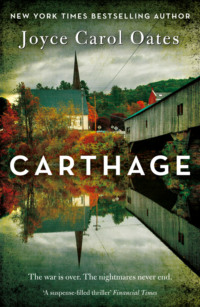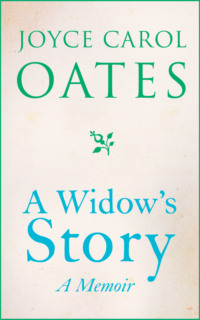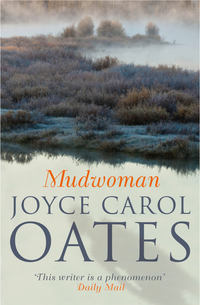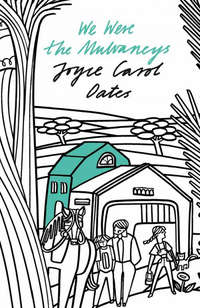
Полная версия
Little Bird of Heaven

Little Bird of Heaven
Joyce Carol Oates

For Charlie Gross
Table of Contents
Cover Page
Title Page
Dedication
Part One
1
2
3
4
5
6
7
8
9
10
11
12
13
14
15
16
17
18
19
20
21
22
23
24
25
Part Two
26
27
28
29
30
31
32
33
34
35
36
37
38
39
40
41
42
43
44
45
46
45
Part Three
1
2
Praise
Also by Joyce Carol Oates
Copyright
About the Publisher
1
THE YEARNING IN MY HEART! This was a long time ago.
“Can’t go inside with you, Krista. But I promise: I won’t drive away until you’re safe indoors.”
That November evening at dusk we were driving along the river—the Black River, in southern Herkimer County, New York—west and slightly south of the city of Sparta, in this long-ago time swathed in mist and smelling of a slightly metallic damp: the river, the rain.
There are those of us—daughters—forever daughters, at any age—for whom the smells—likely to be twin, twined—of tobacco smoke and alcohol are not unpleasant but highly attractive, seductive.
Driving along the river, bringing me home. This man who was my father Edward Diehl—who’d been “Eddy Diehl” and a name of some notoriety in Sparta, in those years—“Eddy Diehl” who would be my father until the night his body was to be riddled with eighteen bullets fired within ten seconds by an improvised firing squad of local law enforcement officers.
Daddy’s hoarse voice, always slightly teasing. And you love being teased if you’re a daughter, you know it is a sign of love.
“Just say we got held up, Puss. No need to elaborate.”
I laughed. Anything Daddy said, I was likely to laugh and say Sure.
Always you had to respond quickly to a remark of Daddy’s, even if it wasn’t a question. If you failed to respond Daddy would look sharply at you, not frowning but not smiling either. A nudge in the ribs—Eh? Right?
Of course Daddy was bringing me home just a little late, carelessly late. So that there was no mistaking that I’d been brought home and hadn’t taken the school bus.
Careless, that was Eddy Diehl’s way. It was never Eddy Diehl’s intention.
Daddy was bringing me home on that November evening not long before his death-by-firing-squad to a house from which he’d been banished by my mother and the circumstances of his banishment had been humiliating to him. This was a two-storey white clapboard house of no special distinction but it was precious to my father, or had been: a house Daddy had partly built, with his hands; a house whose roofing and painting he’d overseen; a house like others on the river road, paint beginning to peel on its northern, exposed side, shutters and trim in need of repair; a house from which several years before Edward Diehl had been banished by an injunction issued by the Herkimer County Criminal Court, Family Services Division. (Neither my brother nor I had seen this document though we knew that it existed, hidden away somewhere in our mother’s legal files.)
Our mother kept such documents from us out of a fear—it was an unreasonable fear, but typical of her—that one of us, presumably me, might take the injunction and tear it into pieces.
I wasn’t that kind of daughter. I think that I wasn’t. Clinging to a man’s careless promise Won’t drive away until you’re safely indoors, Puss.
From what dangers might I be safe, by this action of my father’s, Daddy did not say.
I was very moved, Daddy called me Puss. This was my little-girl name I had not heard in some time. Though I was no longer a little girl, Daddy must know.
Having sighted him once, seeing me. Two years ago when I’d been in eighth grade. Thirteen years old and shorter by an inch or two than I was at fifteen, not an adolescent girl exactly though no longer what you’d call a little girl, yes but clearly a child, young for her age. And crossing a street downtown, several blocks from school, with two other eighth-grade girls. And squealing, and giggling, and running, as a tow truck bore menacingly upon us, the (male, young) driver teasing us by driving fast and (recklessly) close to cause a small tidal wave of gutter water to splash onto our bare legs, and once on the sidewalk, safe but laughing, breathless, in the aftermath of a frisson of terror by chance I saw a man about to climb into a car parked at the curb, and how intently this man was staring at us, at our wetted legs and clothes, seeing this man—with thick rust-colored hair, in profile—fleetingly, for I didn’t pause in running, none of us did—I thought Is that Daddy? That man?
Later, I would think no. Not Daddy. The car he’d been climbing into hadn’t looked familiar—I’d thought.
Of course, I hadn’t looked back. Stared-at in the street by an adult man, at age thirteen you don’t look back.
That day, two years before, there’d been rain. So frequently in Sparta there was rain. From Lake Ontario to the north and west—from the Great Lakes, beyond—(which I knew only from maps, and loved to contemplate: these lakes like exquisite cloud-formations linked one to the other and so beautifully named Ontario, Erie, Huron, Michigan, Superior where our father had promised Ben and me he’d take us sometime, on a “yacht trip”)—always a sky out of which rain-clouds, massive gray-black thunderheads, might emerge as if by malevolent magic.
Of that landscape, and of that parentage.
And so it was raining that evening. And on the narrow blacktop Huron Pike Road visibility was poor. Walls of pale mist like amnesia drifting in front of Daddy’s car, the car’s yellow-tinged headlights that had seemed so powerful were swallowed up in mist. In such driving conditions it’s possible to forget where you are and where you are headed and for what purpose for the infrequent houses were obscured in mist and mailboxes loomed out of the dark like sudden raised arms. “Daddy? Here—” I said for abruptly there was our mailbox at the end of the graveled driveway emerging out of the mist before my father seemed to have expected it.
Daddy grunted to signal Yes. I know where the hell you live.
Now would Daddy turn into the driveway?—that long puddled lane leading back into darkness?—leading back as in a tunnel to our house that, in the encroaching dark, barely visible from the road, glowed a ghostly white? There was only a faint light in the living room windows, the upstairs was darkened. It might have been the case that no one was home except I knew that my mother would be at the rear of the house, in the kitchen where she spent much of her time. If Ben was home, very likely he’d be upstairs in his room also at the rear of the house.
Before he’d moved out—before the court injunction banished him—my father had repaired the steep shingled roof of our house, that had been leaking into the attic; he’d done some electrical rewiring, in the basement; he’d bolstered up the back steps leading into the house. By trade he’d been a carpenter, and a good one; he was a work foreman now, for a Sparta construction company.
Everywhere inside the house, upstairs and down, was evidence of Daddy’s carpentry work, his attentiveness to the house. You would be led to presume, Edward Diehl’s devotion to his family.
Daddy didn’t turn into the driveway but braked to a stop on the road.
Almost I could hear him mutter to himself God damn I will not.
For if he had, he would approach too closely the place of his shame. The place of his expulsion. The place of his hurt and of his rage that was at times a murderous rage, and it was too risky for him who had been banished from these premises by an order of the county court, whose breath smelled frankly of whiskey and whose face was flushed with a deep hot furious fire.
Would you think it strange that to me, who had lived all her life on the Huron Pike Road, the daughter of a man not unlike other men who lived on the Huron Pike Road in those years, the smell of whiskey on my father’s breath was not disturbing but a kind of comfort? (So long as my mother didn’t know. But my mother needn’t know.) A risky comfort, but a comfort nonetheless for it was familiar, it was Daddy.
And the stubbled jaws suddenly ticklish-scratchy against my face as Daddy leaned over to kiss the edge of my mouth, wetly. Daddy’s movements were impulsive and clumsy as those of a man who has long lived by instinct yet has come at last to distrust instinct as he has come to distrust his own capacity for judgment, his sense of himself. Even as Daddy kissed me, roughly, a little too hard, a kiss he intended I would not soon forget, Daddy was pushing me away for a hot rush of blood had come between us.
“G’night, Puss.”
Not good-bye he was saying but good night. This was crucial to me.
It had not seemed to be raining hard but as soon as I climbed out of Daddy’s car and began to run to the house, a chill pelting rain started. A mad flurry of wet leaves rushed at me. Awkwardly I ran with my head lowered, I was breathless and wanting to laugh, so awkward, my backpack gripped in one hand slapping against my legs, almost tripping me. I hated to think that my father might be watching me. Halfway up the lane I turned to see—as somehow I knew I would see—the red taillights of my father’s car fading into the mist.
“Daddy! G’night—”
YOU WOULD THINK But he’d promised her! He’d wait until she was safely inside the house.
You would think that I was disappointed, hurt. And that I was not even surprised, to be disappointed and hurt. But you would be mistaken for I have never been a daughter to judge my father who’d been so harshly, cruelly and wrongly judged by others; and I would not wish to recall so trivial, so petty an injury, a misunderstanding, a moment’s carelessness on the part of a man with so much else to occupy his mind, a man drawn ever more rapidly and inexorably into the orbit of his death and his oblivion beyond the length of the graveled driveway glistening with puddles on that rainy night in November 1987 when I was fifteen years old and eager for my true life to begin.
2
REPROACH LIKE AN ARROW leaping from the bow, aimed at my heart. Reproach in a voice of the lightest chiding, almost you’d mistake—if this were a TV comedy, if you were an unseasoned viewer—for playfulness, mischief.
“You were with him, Krista. Weren’t you.”
My mother did not emphasize him. In the light-chiding TV-Mom voice “him” was flat as concrete.
Nor was her query a question. It was a statement: an accusation.
“You could have called, at least. If you weren’t going to take the bus. If you’d given a thought to anyone except yourself—and him. You’d have known that—”
That I was worried. Or if not worried, offended.
A mother’s pride is easily hurt, don’t mistake a mother’s love as unconditional.
Breathless from my dash through the rain and indignant, straggly-haired I kicked off my boots, fumbling to spike my jacket on a hook by the door half-hoping it would tear. A spiffy purple faux-silk jacket with cream-colored trim I’d quite liked when it was new not so very long ago but now had come to think looked cheap and too hopeful. I was avoiding confronting my mother for I did not want to have to respond to the accusing look in her eyes, a commingling of relief—for truly she’d been worried about me, not having known where I might be—and mounting anger. In the square-cut window above the kitchen counter, that my father had constructed, as he’d rebuilt much of the kitchen, our reflections appeared close together by a trick of perspective; yet you could not have identified either of us, even which was mother, which daughter. In a voice of deceptive calm my mother said, “Krista, at least look at me. Were you—you were, weren’t you?—with him?”
And now it was him. Now, unmistakably.
A strap of my backpack had become tangled in my feet. I kicked it aside, my face was smarting. Near-inaudibly I murmured Yes for I could not lie to my mother who so knew my mutinous heart, and, when she asked what I’d said, guiltily I repeated, defiantly: “Yes. I was with—Daddy.”
Daddy was a little-girl word. Ben had not uttered Daddy in years.
“And where were you, with ‘Daddy’?”
“Just driving. Nowhere.”
“‘Nowhere.’”
“Along the river. Nowhere special.”
But yes it was special. Because it was just Daddy and me.
Betrayal is the hurtful thing. Betrayal is the deepest wound. Betrayal is what remains of love, when love has gone.
My mother’s name was Lucille. No one called her “Lucy.” An acute consciousness of her authority—now, the vulnerability of her authority—seemed to grip her, to bedevil her, at such times, increasingly as I grew older; to the most casual of exchanges she brought a mysterious demand that seemed never to be fully satisfied. Since Lucille’s husband—now her former husband—who was my father—had left us for the final time, or—this had never been clear to me, or to Ben—had been made to leave us, this demand had grown ever more insatiable.
“‘Nowhere’ would have to include a stop for drinks, yes? You must be forgetting that part.”
“Well—” I’d disentangled the strap from my feet, I had no reason not to look at my mother standing close beside me. “That country place on route thirty-one, by the Rapids bridge…”
“The County Line. He took you there?”
My mother’s eyes shone like copper coins. For she had me now, she would not readily surrender me.
“Why didn’t you call me, Krista? If you were in a place with a phone? You must have known I’d be waiting for you.”
“I did call, Mom. I tried…”
“No. I was here, I’ve been home since four-fifteen. I would have heard the phone ringing.”
“Mom, when I called the line was busy. Two or three times I tried, the line was busy…”
This was true: I’d tried to call my mother from the County Line. But I’d only tried twice. Both times the busy signal had rung. Then I’d given up, and I’d forgotten.
Now my mother was saying, conceding: maybe she had been on the phone, for just a few minutes. Maybe yes she’d missed my call. “I called Nancy’s number”—Nancy was a classmate of mine who lived in Sparta, at whose house I sometimes stayed overnight—“to see if you were there, or if Nancy knew where you might be. She didn’t.”
“Mom, for Christ’s sake! Why’d you call Nancy.”
“Krista, don’t use profanity in my presence. That’s crude, and that’s vulgar. Your father might say ‘For Christ’s sake’—and a lot worse—but I don’t want to hear such words in my daughter’s mouth.”
Fuck, Mom. Such words are all I have.
My heart beat in resentment that in my mother’s eyes I was still a child when I was certain I had not been a child in a long time.
“How badly was he drinking? Was it bad?”
“No.”
“And he was driving. Was he—drunk?”
I turned away. I hated this. I would not inform on my father any more than, to my father, I would have informed on my mother.
We’d blundered out of the warm-lit kitchen of shiny maple wood cupboard doors on brass hinges and a countertop of pumpkin-colored Formica, into a shadowy, always musty-smelling alcove by the stairs to the second floor. As in an aggressive dance my mother seemed to be pushing close to me. Breathing into my face with a smell of something sour, frantic.
Lucille didn’t drink: but Lucille had her prescription medication with the unpronounceable name: “Diaphra”—something.
“Where are you going so quickly, Krista? Why are you in such a hurry to get away from me?”
“Mom, I’m not. I have to use the bathroom. My clothes are wet, I want to change my clothes.”
“He made you run through the rain? He didn’t even bring you up to the house?”
“There’s an ‘injunction’ against him, Mom. He’d be arrested, coming onto this property.”
“He should be arrested, violating the custody agreement. Picking you up at school—I assume that’s what he did—without my permission or knowledge. He should be arrested for drunk driving.”
I was trying to smile, to placate her. Trying to ease past her without touching her for I feared that her touch would be scalding.
It was so frequently a surprise to me, a sick-thrilling sort of shock, that my mother was not so tall as she’d once been. For by magic I had grown taller, and more reckless. My hard little breasts were the size of a baby’s fists but the nipples were growing fuller, a deep berry-color, and sensitive; I now wore these breasts tenderly cupped in a white cotton “bra” size 32A. I wore white cotton panties with double-thick crotches. Every four weeks or so I “menstruated”—a phenomenon that filled me with a commingled rage and pride, and anxiety that others—like my mother—would know what my body was doing, what red-earthen-colored seepage it was emitting through a tight little hole between my legs.
My mother was speaking to me, sharply. I wasn’t able to concentrate. As I stood on one of the lower steps of the stairs, my mother stepped up to stand beside me. This was so weird! This was not right. At school, you’d be nudged away, standing so close; even a best friend.
In my confusion it seemed almost that my mother had slapped me, or—someone had slapped me. Or—had someone kissed me hard at the edge of my mouth? A man’s whiskery-scratchy kiss that had stung.
What I wanted was: to get away from this woman, to contemplate that kiss. To draw strength from that kiss. To observe my heated face in a mirror, seeing if that kiss had left a mark.
Love ya, Puss! You know that eh?
Your old man has let you down, you and your brother, but your old man will make it up, sweetie. You know that eh?
Yes it was so, Daddy “drank.” But what man did not drink? No man of my acquaintance in Sparta, no man among my father’s relatives, did not drink except one or two who’d been forbidden alcohol since alcohol would now kill them.
Tell your mother I love her. That will never change.
“—I have now, you and your brother. Don’t roll your eyes at me, Krista, it’s so. You are my family—you are precious to me. He doesn’t love you, he’s just using you to get back at me. ‘Vengeance is mine, saieth the Lord’—this was some old joke of your father’s, he and his brothers would laugh about. The Diehls are all good haters. They’re good enemies. They aren’t trustworthy husbands, fathers, friends—but they’re very good enemies.” My mother paused, having made this familiar declaration: many times I’d heard it, from both my mother and from her (female) relatives. “He picked you up at school, yes? It’s dangerous to drive with a drinker, Krista. You know he’s been arrested for DUI—I wish they’d revoked his license forever. He has hurt others terribly, he will hurt you. He has hurt you, but you pretend not. Can’t you understand, Krista, the man is an adulterer. It wasn’t just me he betrayed, he betrayed all of us. And you know—he hurt that woman. He is a—”
I pushed free of her, with a little cry. I would not let her utter that terrible word murderer.
As I dared to push past my mother she lost control and slapped me: twice, hard, on the side of my head. It was rare that Lucille behaved like this—rare in recent years—for she wasn’t “Mrs. Edward Diehl” any longer but had reverted to “Lucille Bauer” which was her prim girlhood name, a name of which she appeared to be proud; and Lucille Bauer, like all the Bauers, disapproved of displays of weakness in herself, as in others.
Yet her coppery eyes were fierce, she was trying to hug me in an iron grip, pin my arms against my sides. You hear of out-of-control children, autistic children, being “hugged” in such vises, for their own good. The sensation was terrible to me, terrifying. I could not bear it. I could not bear my mother’s sour breath. A smell of her intimate flesh, her powdery-talcumy-plump body, the feeling of her large soft breasts nudging against me, her surprisingly strong fingers…“Let me go! I hate you.” Terrified I ran up the stairs, stumbling and near-falling; and then I did fall, and scraped my knee, pushed myself up again immediately like a panicked animal, running from a predator. It is said that a panicked animal’s strength increases double—or triple-fold and so panic-strength coursed through me, an adrenaline kick to the heart.
To be touched—claimed—by my mother in one of her moods of possession! I knew that I was expected to be passive, meek and childlike in her embrace, this had once been peace between us, this had once been love, Mommy’s little Krissie who has been naughty but now forgiven and safe in Mommy’s arms protected from Daddy’s loud voice and heavy footsteps and Daddy’s unpredictable ways, all that is unknowable and unpredictable in maleness, but I was resisting her now, I would not ever be meek and childlike in this woman’s arms, never again.
It was wounding to us both, lacerating. I would feel that my heart had been torn. Yet I was resolute, unyielding. I would not call back to her, not the most careless words of apology. Stumbling into my darkened room I slammed the door. Behind me on the stairs was the furious aggrieved voice:
“You disgust me, Krista! You’re deceitful, you will turn out like him—betraying those who love you.”
For there is nothing worse than betrayal, is there? Not even murder.
3
HE WOULD SAY I am innocent you know that don’t you?
And I would say Yes Daddy.
But it was never enough of course. The fervent belief, the unquestioning love of a child for her father—this may be precious to the father but it can’t ever be enough for him.
To claim—to claim repeatedly—that you are innocent of what it is claimed by others that you have done, or might have done, or are in some quarters strongly suspected of having done, is never enough unless others, numerous others, will say it for you.
Unless you are publicly vindicated of whatever it is you have been strongly suspected of doing, it can’t be enough.
…you know that darling don’t you? You and your brother? You and your brother and your mother have got to know that don’t you?
Yes Daddy.







